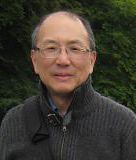| 1984 |
“Wordsworth: The History in ‘Imagination'”Categories Essays , Publications Essays , Publications
|
Citation: “Wordsworth: The History in ‘Imagination.'” ELH 51 (1984): 505-48.
- Full text (JSTOR)
Recall the diversionary force that Napoleon sent to demonstrate in Simplon Pass. If my presentation has even the barest plausibility, it will appear that Wordsworthian “nature” is precisely such an imaginary antagonist against which the self battles in feint, in a ploy to divert attention from the real battle to be joined between history and self. A tourist in Wordsworth’s mould is a historical man who, as soon as he spots scenery, thinks himself primitive and original. (p. 517)Whatever the outcome of the skirmish, called dialectic, between “nature” and self, history, the real antagonist, is thus momentarily denied so that when it debouches at last, it will be recognized with shock by the feinting mind as the greatest power of the Wordsworthian defile. As envisioned in the framework of the total Prelude–where the books of unnatural history then come at the point of climax rather than, as in Paradise Lost, of denouement–denial is the threshold of Wordsworth’s most truly shocking act of Imagination: the sense of history. The true apocalypse will come when history crosses the zone of “nature” to occupy the self directly, when the sense of history and Imagination thus become one, and “nature,” the mediating figure, is no more.
As I suggested earlier, history enters into experience as a sense of “elsewhereness,” a chasm in being where presence is in exchange with absence or infinitude. Infinite absence can wear many names, many ideological vestments or “ideas” of history doomed always to be after-the-fact. Originating in a sense of alienated sourcehood that in its very moment of discovery–like the Nile flowing from undiscovered sources–evacuates the notions of “sourcehood” or “origination,” an idea of history, it seems, can only emerge with a certain air of unreality. The moment when an individual seeks to explain the reality of history, or first recognizes the existence of a reality in need of historical account, is also the moment when he discovers that he cannot by himself originate a fully sufficient explanation. How, then, to know history as real?
The largest, most capacious theme of Wordworth’s life work, I believe, fits that of the nineteenth century generally: realizing the sense of history as an ideology or philosophy that explains away originating absence. Within the envelope of this theme fit the traditional problems of Wordsworth criticism: time, nature, self, mind.
